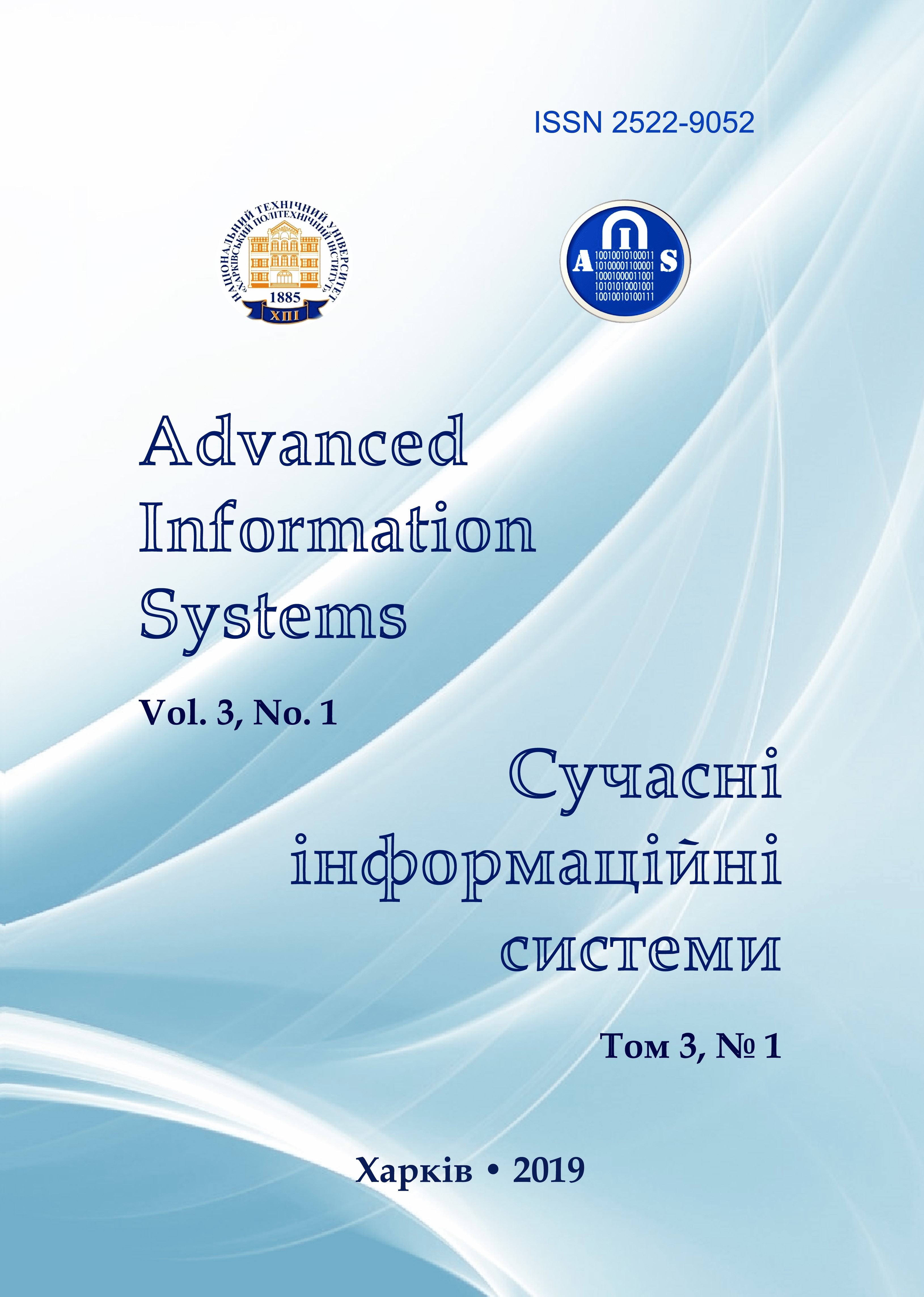Development of the approach for ranking academic institutions based on scientific activity
Main Article Content
Abstract
The subject of the paper is the scientometric data of information-analytical systems. The purpose of this paper is to analyze of existing methods for assessing academic institutions based on scientific activities and develop the approach to ranking the academic institutions using the science data of the Web of Science Core Collection (WoS CC) and Scopus, according to the peculiarities of the evaluated objects. Results. Academic rankings are an integral part of modern methods of evaluating scientific activity. Their results are used by agencies to manage the quality of activities, based on which the academic organization may receive certain preferences: funding, students, post-graduate students, research and teaching staff, academic reputation and others. Improving methods for assessing scientific activity is an urgent task. The rating assessment must be objective. On that condition, the institution may schedule appropriate measures to improve the quality of educational and scientific activities, which ensures better performance. The paper proposes the approach to the ranking of academic institutions based on bibliometric methods according to their limitations and peculiarities of the evaluated objects. Conclusions. The proposed approach provides an increase in the information base for the study of document flows; increases the objectivity of the assessment due to the use of more indicators; takes into account the limitations and disadvantages of bibliometric methods and features of the evaluated objects. The rationing approach metric can be the basis for the general institution rating after revision. The main areas for revision are mandatory accounting of the employee number of an academic institution; calculation of metrics based on the number of original publications.
Article Details
References
Chaikovsky, Yu.B., Silkina, Yu.V. and Pototskaya O.Yu. (2012), “Naukometric bases and their quantitative indices (Part I. Comparative characteristics of the science-based bases)”, Bulletin of the National Academy of Sciences of Ukraine, No. 8, pp. 89–98.
Solovyanenko, D. (2012), “Policy of Indexing of Publications in Science Metrics of Web of Science and SciVerse Scopus”, Library Bulletin, No. 1, pp. 6–21.
Chaikovsky, Yu.B., Silkina, Yu.V. and Pototskaya O.Yu. (2013), “Naukometric bases and their quantitative indices (Part II. Factors influencing quantitative indices of science-based bases)”, Bulletin of the National Academy of Sciences of Ukraine, No. 9, pp. 84–92.
URAN - Ukrainian index of scientific citation, available at: http://www.uran.net.ua/~ukr/ps-uincit.htm.
Bibliometrics of Ukrainian science from Google Scholar and Scopus, available at:
http://www.nbuviap.gov.ua/bpnu/index.php?page_sites=pro_proect.
PAN LIBRARY: What is known about Open Ukrainian Citation Index, available at:
http://www.бібліотекар.укр/2018/07/open-ukrainian-citation-index.html.
On Approval of the Rules of Procedure of the National Repository of Academic Texts, available at:
http://zakon.rada.gov.ua/laws/show/z0858-18.
University Ratings by Scopus 2018, available at: http://ru.osvita.ua/vnz/rating/60539.
Consolidated rating of Ukrainian universities in 2018 – Osvita.UA, available at: http://ru.osvita.ua/vnz/rating/51741.
Hlavcheva, Yu.M. (2018), “Method of comparison of academic institutions on the basis of determining the fate of publications cited above the average”, Model of the library of the XXI century, Kharkiv, available at:
http://conf.nlu.edu.ua/libmodel/paper/view/14650.
Dhivakar, B., Saravanan, S.V., Sivaram, M. and Krishnan R.A. (2012), “Statistical Score Calculation of Information Retrieval Systems using Data Fusion Technique”, Computer Science and Engineering, Vol. 2, Issue 5, pp.43-45, doi: http://doi.org/10.5923/j.computer.20120205.01
Kosenko, V. (2017), “Mathematical model of optimal distribution of applied problems of safety-critical systems over the nodes of the information and telecommunication network”, Advanced Information Systems, Vol. 1, No. 2, pp. 4–9, doi: http://doi.org/10. 20998/2522-9052.2017.2.01
QS World University Rankings 2019. Top Universities, available at:
https://www.topuniversities.com/university-rankings/world-university-rankings/2019.
Tsvetkova, V.A. (2015), Citation Systems: Where's the Benefit of Evil, Scientific and Technical Libraries, No. 1, pp. 18–22.
